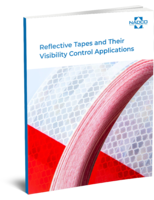Electrical / Electronic Probes
Flying Lead Solder-Down Probe suits PCIe 3.0 protocol analysis.
Press Release Summary:
Used with U4301A protocol analyzer module, U4324A can be used for bidirectional lane widths as narrow as x2 and cleanly captures 8.0 GT/s traces from DUT. Probe provides additional line for connection to external reference clock, and it supports 2.5, 5, and 8 GT/s PCIe IO speeds. Designed to meet needs of silicon, system, and embedded PC connector testing, product works with replaceable N5426A ZIF (zero insertion force) tip kit that extend probe life via tip on-demand replacement.
Original Press Release:
Agilent Technologies Announces Industry's Most Cost-Effective PCI Express® 3.0 Flying Lead Probe
SANTA CLARA, Calif. - Agilent Technologies Inc. (NYSE: A) today announced a new flying lead solder-down probe for PCI Express 3.0 protocol analysis. The new U4324A probe, for use with Agilent's U4301A protocol analyzer module, is the industry's most cost-effective solder-down probing solution.
"The PCI Express flying lead probe is designed for simplicity, flexibility and low cost," said Rob Vezina, a PCI Express product marketing engineer at Agilent. "It cleanly captures 8.0 GT/s traces from the device under test while it eliminates the need to buy more expensive solder-down probes that contain wires that are unused for the testing application."
Other probes on the market come equipped with 16, unmappable leads, resulting in unused leads that increase the price of the probe, even though they are not useful for today's most common channel tests. Agilent's U4324A flying lead probe can be used for bidirectional lane widths as narrow as x2, making it the most cost-effective solution for capturing 8 GT/s traces in the industry. It was designed with the needs of silicon, system and embedded PC connector testing in mind.
Agilent's U4301A PCI Express 3.0 protocol analyzer can accept up to four flying lead probes, offering support for up to 16 channels. The module's software enables users to remap any available wire on the probe. It also supports bidirectional capability, upstream or downstream, for every channel. What's more, it can map any unused cable to replace a lead that is damaged or broken. Finally, the probe provides an additional line for connection to an external reference clock, and it supports 2.5-GT/s, 5-GT/s and 8-GT/s PCI Express IO speeds.
The most delicate part of any solder-down probe is the tip. To further reduce the cost of testing, Agilent's U4324A PCI Express 3.0 flying lead probe works with Agilent's low-cost, replaceable N5426A ZIF (zero insertion force) tip kit. Each of the four probe leads can then plug into the expendable ZIF tip, which is then soldered to the channel on the device under test. The kit allows users to easily replace tips as necessary, ensuring the long life of the Agilent U4324 flying lead solder-down probe.
Additional information is available at www.agilent.com/find/U4324A. A high-resolution screen image of Agilent's U4324A flying lead probe is available at www.agilent.com/find/U4324A_images.
U.S. Pricing and Availability
The U4324A PCI Express 3.0 flying lead solder-down probe and ZIF tip kit are available now. The U4324A starts at approximately $7,000.
About Agilent Technologies
Agilent Technologies Inc. (NYSE: A) is the world's premier measurement company and a technology leader in chemical analysis, life sciences, electronics and communications. The company's 18,700 employees serve customers in more than 100 countries. Agilent had net revenues of $6.6 billion in fiscal 2011. Information about Agilent is available at www.agilent.com.
PCI Express is a U.S. registered trademark of PCI-SIG.




